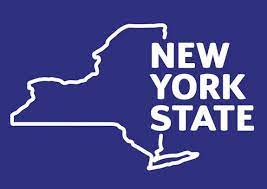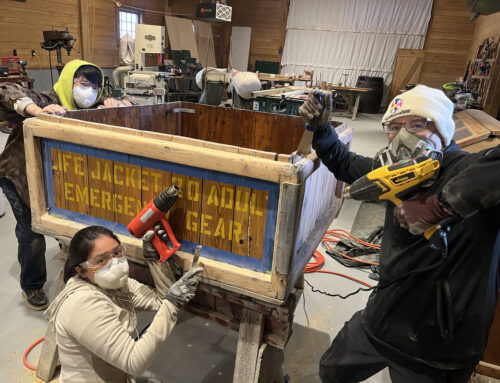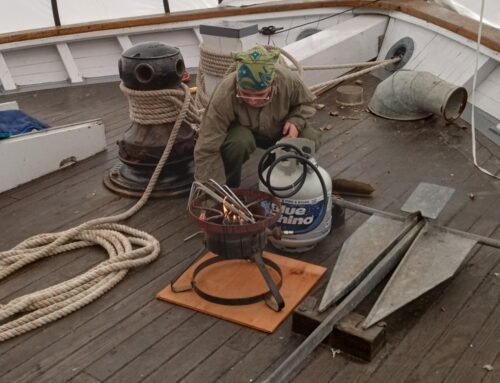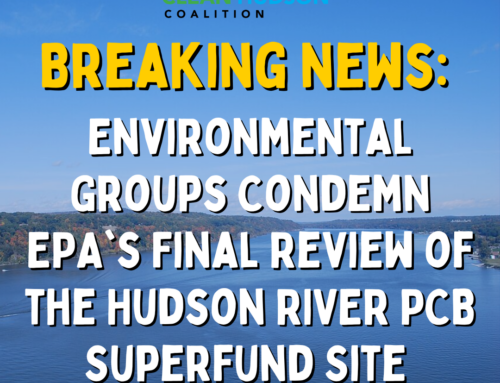Skip to content
April 2022: EA Update
April 2022 Environmental Action Update
 A recent Supreme Court Decision weakens the Clean Water Act (CWA), while the inclusion of Freshwater Wetlands in NYS Budget strengthens it. Last week was a case of bad news followed by good news for watershed protection. While Clearwater is greatly dismayed by the recent Supreme Court decision to reinstate an earlier regulation which restricts the ability of states and Native American tribes to enforce the Clean Water Act, we applaud major win for freshwater wetlands, which received expanded protections in New York State’s budget in an historic legislative agreement that will safeguard more than one million acres of natural areas that are critical to resiliency efforts against an insidiously warming planet. These long-awaited protections will expand the NYS Department of Environmental Conservation’s (DEC) ability to require permits for activities that impact wetlands larger than 7.4 acres along with smaller wetlands of “unusual importance.”
A recent Supreme Court Decision weakens the Clean Water Act (CWA), while the inclusion of Freshwater Wetlands in NYS Budget strengthens it. Last week was a case of bad news followed by good news for watershed protection. While Clearwater is greatly dismayed by the recent Supreme Court decision to reinstate an earlier regulation which restricts the ability of states and Native American tribes to enforce the Clean Water Act, we applaud major win for freshwater wetlands, which received expanded protections in New York State’s budget in an historic legislative agreement that will safeguard more than one million acres of natural areas that are critical to resiliency efforts against an insidiously warming planet. These long-awaited protections will expand the NYS Department of Environmental Conservation’s (DEC) ability to require permits for activities that impact wetlands larger than 7.4 acres along with smaller wetlands of “unusual importance.”
 Clearwater Comments on the Climate Action Council Draft Scoping Plan to implement New York’s urgently needed Climate Action and Community Protection Act (CLCPA): In addition to developing our own comments, Clearwater is actively coordinating 7-county Mid-Hudson Regional Energy Working Group comments. Actions Please sign up to offer comments at an upcoming hearing or submit comments in writing.
Clearwater Comments on the Climate Action Council Draft Scoping Plan to implement New York’s urgently needed Climate Action and Community Protection Act (CLCPA): In addition to developing our own comments, Clearwater is actively coordinating 7-county Mid-Hudson Regional Energy Working Group comments. Actions Please sign up to offer comments at an upcoming hearing or submit comments in writing.
CLCPA Goals:
-
Carbon neutral economy, mandating at least an 85% reduction in emissions below 1990 levels
-
40% reduction in emissions by 2030
-
70% renewable electricity by 2030
-
100% zero-emissions electricity by 2040
-
9,000 MW of offshore wind by 2035
-
6,000 MW of distributed solar by 2025
-
3,000 MW of energy storage by 2030
-
185 TBtu on-site energy savings by 2025
-
Commitments to climate justice and just transition
Key Talking Points: Identify policies, projects, and other initiatives that support or present barriers to achieving CLCPA goals, including:
-
Equitable sharing of the costs of much needed grid upgrades between developer and utility and NY State, including applying any Federal funding available to do so.
-
Ensure renewable energy (RE) infrastructure with storage precedes beneficial electrification to avoid burning more fossil fuel if demand increases before RE is in place.
-
Utilities lowering rebates on air-source heat pumps slows implementation; geothermal rebates maintained
-
Consumer Benefit Charge (CBC) net-metering surcharge significantly hinders solar development in NY.
-
Building energy retrofits: superinsulation with careful air-sealing employing healthy building practices are a major source of energy
Details are available on the Climate Act website.
Albany: Thurs., April 14, at 4 p.m. Empire State Plaza, Meeting Room
Bronx: Tues, May 3, 4 p.m. NYC College of Technology The Theater at City Tech 285 Jay Street
VIRTUAL: Sat., May 7, 10 a.m. and Weds., May 11 at 4 p.m.
Pre-registration is encouraged but not required for the in-person hearings. All persons, organizations, corporations, and government agencies are encouraged to attend the public hearings and to submit oral or written comments.
Written comments can be submitted through June 10, via the online public comment form, via email to scopingplan@nyserda.ny.gov, or via U.S. Mail to Attention: Draft Scoping Plan Comments, NYSERDA, 17 Columbia Circle, Albany, NY 12203-6399.
For more information about the New York State Climate Action Council, visit the Climate Act website
 NYS Decommissioning Oversight Board (DOB): On March 17, the NYS Decommissioning Oversight Board held its second meeting, which featured pipeline safety expert, Rick Kurprewitz, who presented on the risks associated with the gas pipelines that run underneath and adjacent to Indian Point and how these should be factored into the decommissioning of the plant. The next virtual meeting will be held on Thurs., May 19 from 6-9 p.m. and will be virtual. The 2022 DOB Meeting schedule is here.
NYS Decommissioning Oversight Board (DOB): On March 17, the NYS Decommissioning Oversight Board held its second meeting, which featured pipeline safety expert, Rick Kurprewitz, who presented on the risks associated with the gas pipelines that run underneath and adjacent to Indian Point and how these should be factored into the decommissioning of the plant. The next virtual meeting will be held on Thurs., May 19 from 6-9 p.m. and will be virtual. The 2022 DOB Meeting schedule is here.
 Mid-Hudson Regional Municipal Solar Mapping Project:
Mid-Hudson Regional Municipal Solar Mapping Project:
Using Scenic Hudson’s How to Solar Mapping Toolkit and Worksheet, we are helping to empower municipalities to take a leadership role in implementing the goals of NY’s Climate Act. The Spring 2022 Session began on March 16 with 46 participants from 22 municipalities, including members of Town Boards, Planning Boards, Environmental Commissions, Economic Development Committees and Climate Smart Committees in the Mid-Hudson Region and beyond. Please contact: mannajo@clearwater.org for more details. A third cohort of this powerful training will be held in the Fall 2022.
 Earth Day Calendar of Events:
Earth Day Calendar of Events:
Weds., April 20 @ 5:30 pm New Leaders for the Hudson River and the Clean Water Act at 50
Sat., April 23, 10 a.m. to 3 p.m. Esopus Earth Day Event
Sat., April 23, 10 a.m.- 1 p.m. Great Saw Mill River Cleanup is taking place at 7 different sites all throughout the Saw Mill River Watershed.

Share This Story, Choose Your Platform!
Page load link
 A recent Supreme Court Decision weakens the Clean Water Act (CWA), while the inclusion of Freshwater Wetlands in NYS Budget strengthens it. Last week was a case of bad news followed by good news for watershed protection. While Clearwater is greatly dismayed by the recent Supreme Court decision to reinstate an earlier regulation which restricts the ability of states and Native American tribes to enforce the Clean Water Act, we applaud major win for freshwater wetlands, which received expanded protections in New York State’s budget in an historic legislative agreement that will safeguard more than one million acres of natural areas that are critical to resiliency efforts against an insidiously warming planet. These long-awaited protections will expand the NYS Department of Environmental Conservation’s (DEC) ability to require permits for activities that impact wetlands larger than 7.4 acres along with smaller wetlands of “unusual importance.”
A recent Supreme Court Decision weakens the Clean Water Act (CWA), while the inclusion of Freshwater Wetlands in NYS Budget strengthens it. Last week was a case of bad news followed by good news for watershed protection. While Clearwater is greatly dismayed by the recent Supreme Court decision to reinstate an earlier regulation which restricts the ability of states and Native American tribes to enforce the Clean Water Act, we applaud major win for freshwater wetlands, which received expanded protections in New York State’s budget in an historic legislative agreement that will safeguard more than one million acres of natural areas that are critical to resiliency efforts against an insidiously warming planet. These long-awaited protections will expand the NYS Department of Environmental Conservation’s (DEC) ability to require permits for activities that impact wetlands larger than 7.4 acres along with smaller wetlands of “unusual importance.” Clearwater Comments on the Climate Action Council Draft Scoping Plan to implement New York’s urgently needed Climate Action and Community Protection Act (CLCPA): In addition to developing our own comments, Clearwater is actively coordinating 7-county Mid-Hudson Regional Energy Working Group comments. Actions Please sign up to offer comments at an upcoming hearing or submit comments in writing.
Clearwater Comments on the Climate Action Council Draft Scoping Plan to implement New York’s urgently needed Climate Action and Community Protection Act (CLCPA): In addition to developing our own comments, Clearwater is actively coordinating 7-county Mid-Hudson Regional Energy Working Group comments. Actions Please sign up to offer comments at an upcoming hearing or submit comments in writing. NYS Decommissioning Oversight Board (DOB): On March 17, the NYS Decommissioning Oversight Board held its second meeting, which featured pipeline safety expert, Rick Kurprewitz, who presented on the risks associated with the gas pipelines that run underneath and adjacent to Indian Point and how these should be factored into the decommissioning of the plant. The next virtual meeting will be held on Thurs., May 19 from 6-9 p.m. and will be virtual. The 2022 DOB Meeting schedule is here.
NYS Decommissioning Oversight Board (DOB): On March 17, the NYS Decommissioning Oversight Board held its second meeting, which featured pipeline safety expert, Rick Kurprewitz, who presented on the risks associated with the gas pipelines that run underneath and adjacent to Indian Point and how these should be factored into the decommissioning of the plant. The next virtual meeting will be held on Thurs., May 19 from 6-9 p.m. and will be virtual. The 2022 DOB Meeting schedule is here. Mid-Hudson Regional Municipal Solar Mapping Project:
Mid-Hudson Regional Municipal Solar Mapping Project:  Earth Day Calendar of Events:
Earth Day Calendar of Events:





